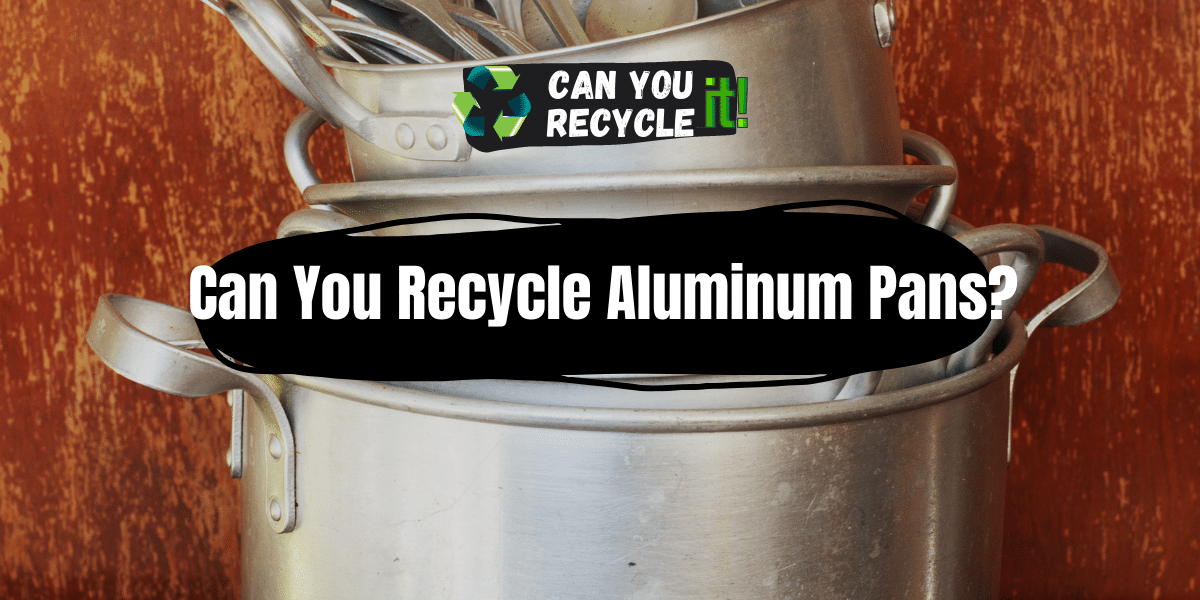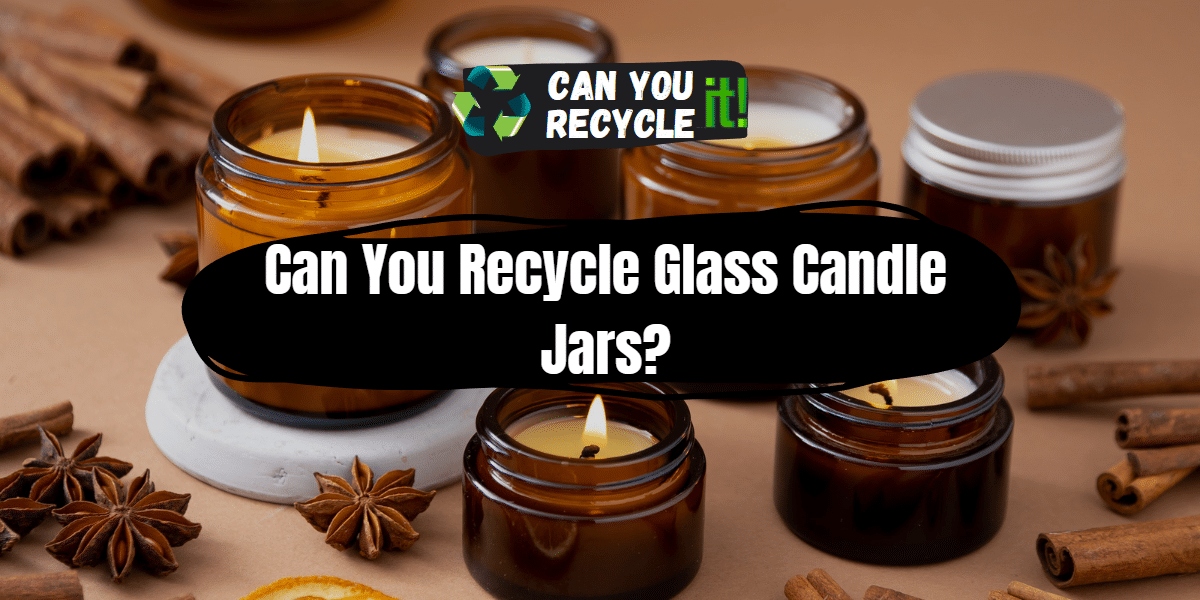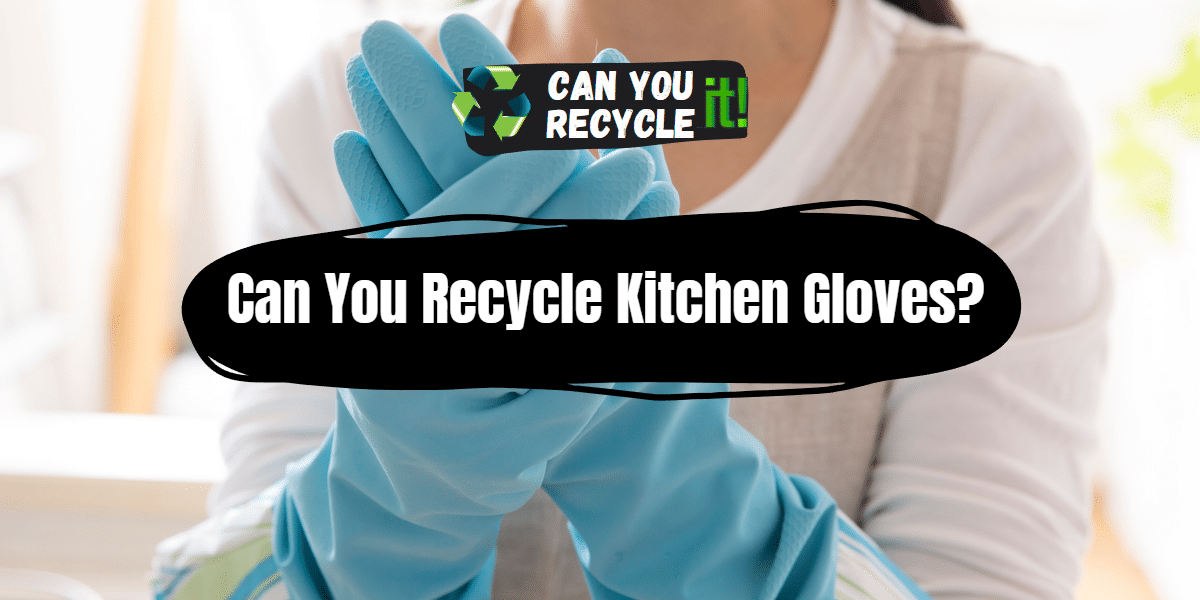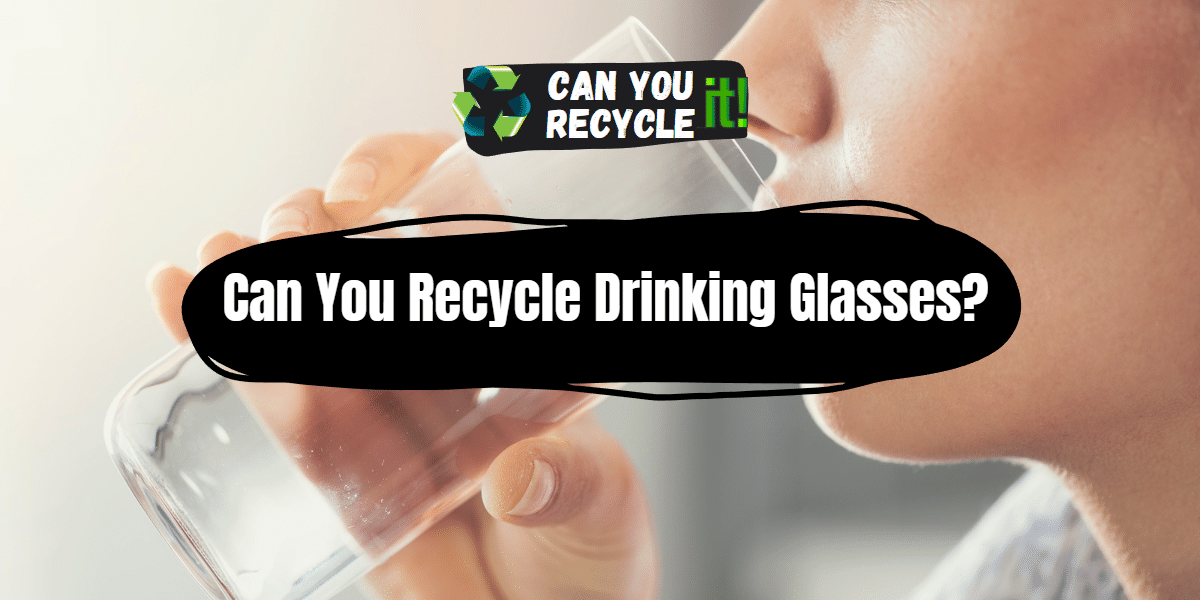Can you recycle aluminum pans? The answer is yes! Aluminum pans are indeed recyclable, making them an eco-friendly choice.
Recycling aluminum saves valuable resources and energy and reduces the amount of waste that ends up in landfills. However, specific guidelines and preparation steps must be followed to ensure your aluminum pans can be effectively recycled.
Aluminum pans are a common kitchen item used for cooking and baking. As environmentally conscious individuals, it’s essential to understand the recycling possibilities for these pans. Recycling aluminum not only reduces waste but also conserves energy and natural resources. In this article, we will explore whether aluminum pans can be recycled, how to prepare them for recycling, alternative options for pans that cannot be recycled, and the environmental impact of recycling Aluminum pans. Let’s dive in and discover the sustainable choices for our aluminum pans.
Table of Contents
Do’s and Don’ts
When it comes to recycling aluminum pans, there are a few dos and don’ts to keep in mind:
Dos
- Clean the pans: Make sure to remove any food residue or grease from the pans before recycling. This can be done by handwashing or using mild dish soap.
- Separate non-metal parts: If your aluminum pan has any non-metal components, such as plastic handles or lids, remove them before recycling. These parts may need to be recycled separately or disposed of properly.
- Check local recycling guidelines: Different municipalities have varying recycling regulations, so it’s crucial to familiarize yourself with the specific guidelines in your area. This will ensure that you follow the proper procedures for recycling aluminum pans.
Don’ts
- Don’t mix aluminum pans with other metals: While aluminum pans are recyclable, it’s important not to mix them with other types of metal. Different metals have different recycling processes, and combining them can complicate the recycling process.
- Don’t recycle heavily damaged pans: If your aluminum pan is severely dented, warped, or damaged, it may not be suitable for recycling. Damaged pans can interfere with the recycling machinery and may need to be disposed of as regular waste.
The Energy Savings of Recycling Aluminum Pans:
One remarkable fact to highlight regarding the environmental impact of recycling aluminum pans is the substantial energy savings achieved through the recycling process. According to the Environmental Protection Agency (EPA), recycling aluminum can save up to 95% of the energy required to produce aluminum from bauxite ore[^1^]. This significant energy reduction contributes to a lower carbon footprint and demonstrates the importance of recycling aluminum pans as an environmentally responsible practice.
5-Step Guide to Recycle Aluminum Pans
Recycling aluminum pans is a simple process. Here’s a five-step guide to help you recycle your aluminum pans effectively:
Step 1
Clean the pans: Thoroughly wash the aluminum pans with warm water and mild dish soap to remove any food residues or grease. Dry them thoroughly before recycling.
Step 2
Remove non-metal components: If your aluminum pans have non-metal parts such as plastic handles or lids, detach them and dispose of them separately or recycle them, following the appropriate guidelines.
Step 3
Check local recycling options: Research local recycling facilities or check with your municipality to find out where you can recycle aluminum pans. Some communities offer curbside recycling, while others may require drop-off at designated recycling centers.
Step 4
Package the pans: If your recycling program requires it, stack the aluminum pans together and secure them with a rubber band or place them in a paper bag. This helps prevent them from scattering during transportation.
Step 5
Recycle responsibly: Take your prepared aluminum pans to the designated recycling facility or follow the instructions provided by your local recycling program. Ensure that you comply with any additional guidelines they may have to facilitate the recycling process.
What to Do with Aluminum Pans That Cannot Be Recycled
While aluminum pans are recyclable, there may be instances when a pan cannot be recycled. Here are a few alternative options for aluminum pans that cannot be recycled:
- Reuse: If your aluminum pans are still in good condition, consider reusing them instead of discarding them. They can serve as extra baking pans, storage containers, or even makeshift plant pots for your garden.
- Donate or give away: If you no longer need your aluminum pans, consider donating them to local community centers, schools, or charitable organizations. Someone else might find them helpful.
- Repurpose creatively: Get creative and repurpose your aluminum pans into unique household items. They can be transformed into candle holders, wall art, or even organizers for small items.
- Check with scrap metal recyclers: In some cases, scrap metal recyclers may accept aluminum pans that are damaged or cannot be recycled through traditional methods. Contact local scrap metal recycling facilities to inquire about their acceptance criteria.
Environmental Impact of Aluminum Pans Recycling
Recycling aluminum pans not only contributes to a more sustainable waste management system but also has significant environmental benefits. Let’s delve into the positive environmental impact of recycling aluminum pans and understand why it is a crucial step towards a greener future.
Environmental Impact
- Conservation of Natural Resources: Aluminum is derived from bauxite ore extracted through mining. Recycling aluminum pans reduces the demand for new raw materials, conserving valuable natural resources. Mining for bauxite not only causes habitat destruction but also has substantial energy and water requirements. Recycling aluminum pans helps alleviate these environmental pressures and preserves natural ecosystems.
- Energy Savings: The production of aluminum from raw materials requires a considerable amount of energy. However, recycling aluminum requires significantly less energy compared to primary production. According to the Environmental Protection Agency (EPA), recycling aluminum can save up to 95% of the energy needed to produce aluminum from bauxite ore. This energy saving translates into reduced greenhouse gas emissions and a lower carbon footprint.
- Reduction in Greenhouse Gas Emissions: The energy-intensive process of extracting and refining bauxite to create new aluminum releases substantial amounts of greenhouse gases, contributing to climate change. In contrast, recycling aluminum pans significantly reduces greenhouse gas emissions. The recycling process produces only a fraction of the emissions associated with primary aluminum production, resulting in a substantial environmental benefit.
- Landfill Waste Reduction: Aluminum pans that end up in landfills contribute to the growing waste problem. These pans can take hundreds of years to decompose, occupying valuable landfill space. By recycling aluminum pans, we divert them from landfills, reducing the burden on waste management systems. Additionally, reducing landfill waste helps mitigate harmful environmental impacts, such as the release of greenhouse gases and the contamination of soil and water.
- Preservation of Water Resources: The production of primary aluminum requires substantial water usage, as bauxite mining and refining involve water-intensive processes. By recycling aluminum pans, we reduce the need for these resource-intensive practices and contribute to water conservation efforts. Conserving water resources is crucial for ensuring a sustainable future, particularly in regions facing water scarcity and drought.
- Circular Economy and Sustainable Practices: Recycling aluminum pans aligns with the principles of a circular economy, where materials are reused, recycled, and kept in circulation for as long as possible. By participating in the recycling process, we support sustainable practices and promote the concept of resource conservation. The aluminum from recycled pans can be transformed into new products, continuing the lifecycle of the material and reducing reliance on virgin resources.
The environmental impact of recycling aluminum pans is profound. By choosing to recycle, we contribute to the conservation of natural resources, save energy, reduce greenhouse gas emissions, minimize landfill waste, preserve water resources, and embrace sustainable practices.
FAQs for Can you Recycle Aluminum Pans
Can I recycle aluminum foil?
Yes, clean aluminum foil can be recycled. However, check your local recycling guidelines, as some municipalities may have specific instructions regarding aluminum foil recycling.
Can I recycle aerosol cans?
Yes, aerosol cans made of aluminum or steel are recyclable. Ensure they are empty before recycling and remove any plastic caps or lids.
Are aluminum pans better for the environment than other materials?
Aluminum pans are more eco-friendly than many other materials used for cookware. Aluminum is highly recyclable and can be recycled repeatedly without losing its properties, making it a sustainable choice.
What are the benefits of recycling aluminum pans?
Recycling aluminum pans conserves natural resources, saves energy, reduces greenhouse gas emissions, and minimizes the amount of waste that ends up in landfills.
Conclusion and Final Thoughts 💭
Recycling aluminum pans is an excellent way to contribute to a more sustainable future. By following the dos and don’ts, preparing the pans properly, and adhering to local recycling guidelines, you can ensure that your aluminum pans are recycled efficiently. Remember to explore alternative options for pans that cannot be recycled, such as reusing or repurposing them. Together, we can make a positive impact on the environment by making conscious choices when it comes to recycling aluminum pans.





Leave a Reply